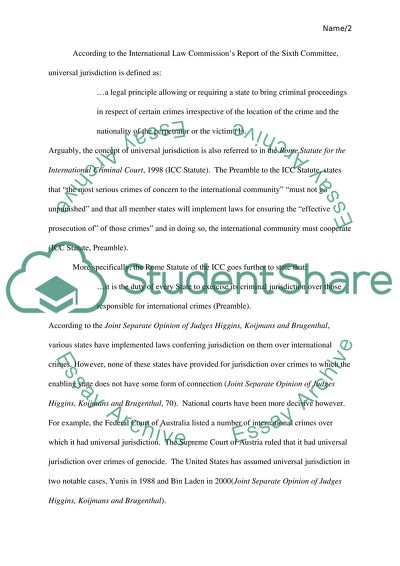Cite this document
(“Universal jurisdiction application of International Law Essay”, n.d.)
Retrieved from https://studentshare.org/law/1496106-universal-jurisdiction-application-of
Retrieved from https://studentshare.org/law/1496106-universal-jurisdiction-application-of
(Universal Jurisdiction Application of International Law Essay)
https://studentshare.org/law/1496106-universal-jurisdiction-application-of.
https://studentshare.org/law/1496106-universal-jurisdiction-application-of.
“Universal Jurisdiction Application of International Law Essay”, n.d. https://studentshare.org/law/1496106-universal-jurisdiction-application-of.


